Blog
A New Era for Asia
Last week, I visited Tianjin and Beijing to attend two events: the World Economic Forum Annual Meeting of the New Champions 2025 (also known as “Summer Davos”) and the 10th Annual Meeting of the Board of Governors of the Asian Infrastructure Investment Bank (AIIB). Although the two conferences focused on different themes, they both highlighted several major macro trends of global significance, including –
- How can we sustain global economic momentum amid rising headwinds against globalisation and mounting challenges to multilateralism?
- How can developing countries respond to challenges such as tariff wars and climate change?
- How do we seize the opportunities of technological revolution, especially in artificial intelligence (AI) and digitalisation, and the transformation of industries?
- How can we build a more equitable, orderly and inclusive global governance system?
Participants expressed strong interest in China’s economic prospects, recognising the country as a vital force for global economic stability and growth, particularly within Asia. Many were also inspired by China’s technological innovation and entrepreneurial spirit.
In his opening address at Summer Davos, Premier Li Qiang noted that in the evolution of the international economic and trade landscape, there are both destructive factors that keep creating shocks, and many positive forces that seek to counter the risks of instability and uncertainty. He said that economic globalisation will not be reversed; more likely, it will carve out a new path, and forge ahead amid twists and turns.
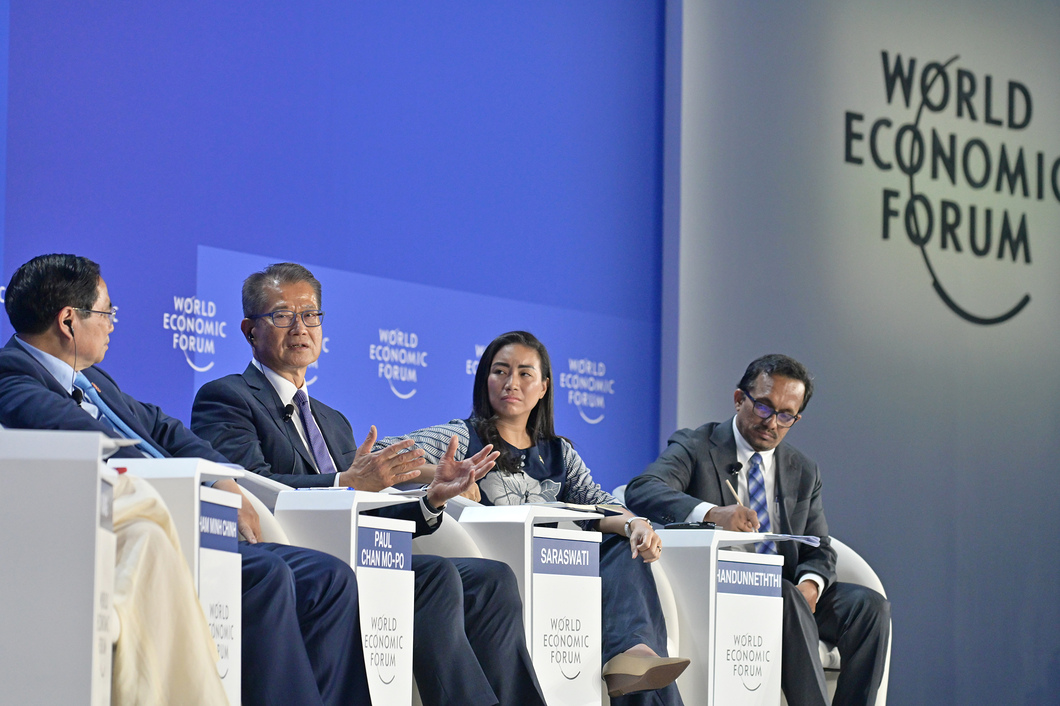
|
| Speaking at a discussion session titled “Is Asia's Century at Risk?” at Summer Davos. |
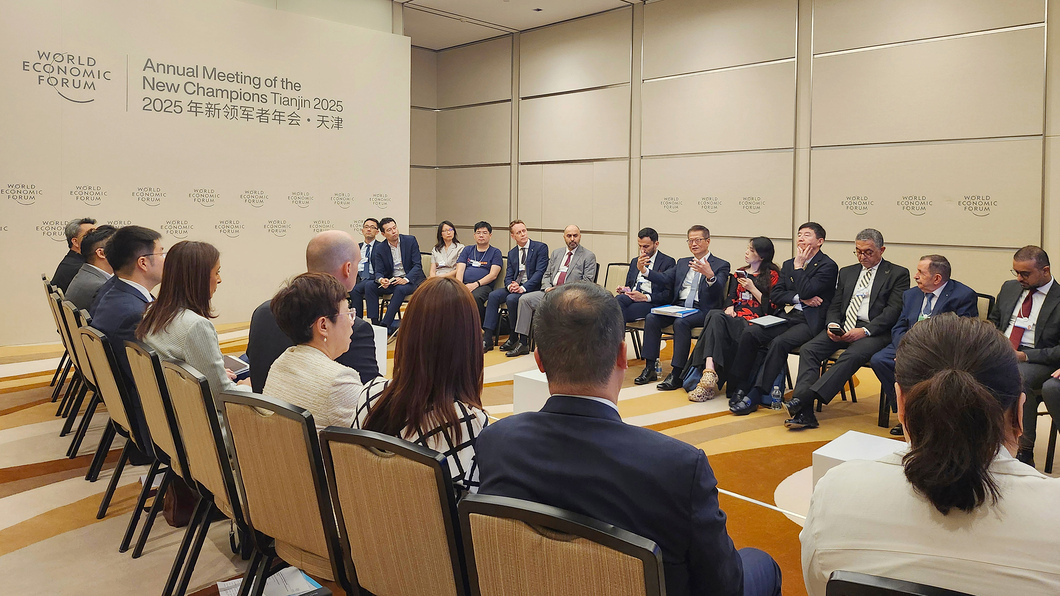
|
| Speaking at a discussion session on the trade and investment relationship between the Middle East and North Africa (MENA) and China at Summer Davos. |
Indeed, the Asian region has demonstrated remarkable economic resilience, even in the face of geopolitical tensions. Asia currently contributes around 60% of global economic growth. According to the International Monetary Fund, the economic growth rate of developing Asia is projected to be 4.5% to 4.6% this year and next, substantially higher than the 1.4% to 1.5% average growth rate of advanced economies. As trade and non-trade barriers continue to rise globally, regional economic and trade cooperation within Asia is expected to deepen. For example, in May, China and ASEAN concluded negotiations on the “China-ASEAN Free Trade Area 3.0”, with a focus on digitalisation and the green economy.
As a free port and a vital gateway connecting the Mainland and the rest of the world, Hong Kong’s recent external trade performance reflects these broader trends to a certain extent. In May, the value of Hong Kong’s total merchandise exports increased by 15.5% year-on-year, marking 15 consecutive months of growth. Particularly notable is the 59% increase in exports to Vietnam in the first five months of this year, along with 20% and 18% increases to Japan and the Mainland respectively.
In this era of sustained and rapid growth across Asia, Hong Kong is well positioned to discover new opportunities, new momentum and new pathways forward. In the financial sector, for instance, Hong Kong’s comprehensive financial services can play a more important and diversified role in the region’s development.
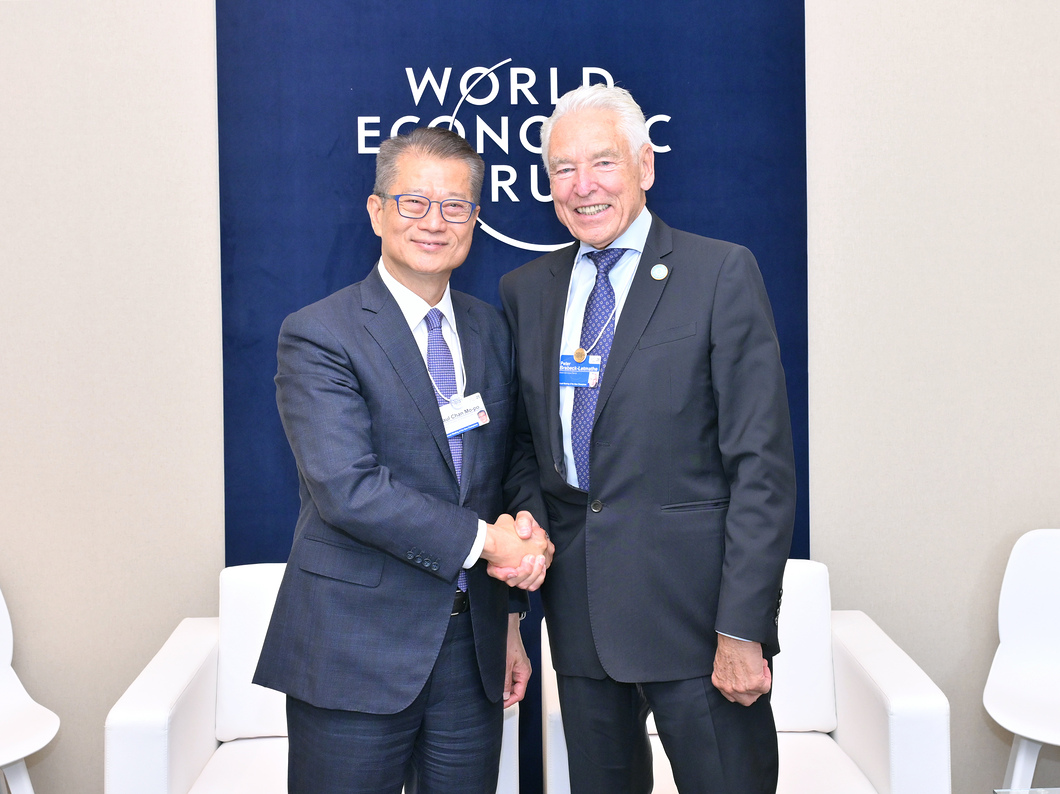
|
| Meeting with the Chairman ad interim of the World Economic Forum, Mr Peter Brabeck-Letmathe, at Summer Davos. |
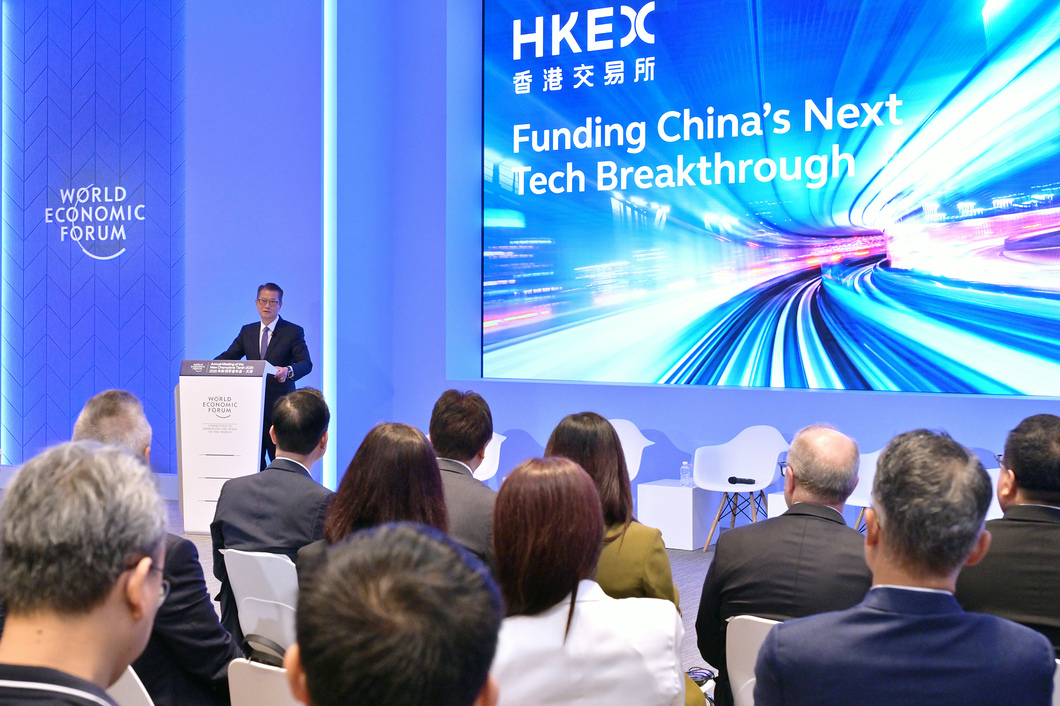
|
| Attending and speaking at a discussion session organised by the Hong Kong Exchanges and Clearing Limited at Summer Davos. |
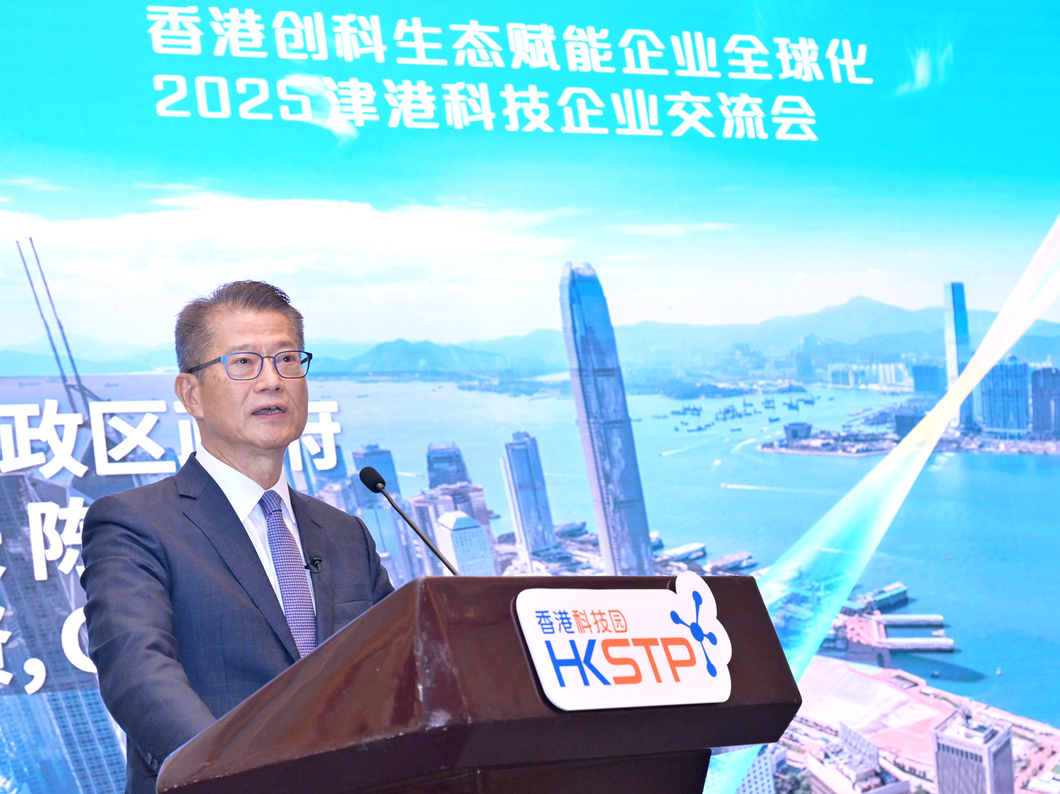
|
| Attending and speaking at the 2025 Tianjin–Hong Kong Tech Enterprise Exchange Forum in Tianjin organised by the Hong Kong Science and Technology Parks Corporation. |
As trade volumes within the Global South continue to grow, economies in Asia and beyond increasingly prefer using local currencies for trade settlement. Since 2017, China has been the world’s largest trading nation for eight consecutive years. It accounted for 12.5% of global trade last year. This is expected to drive further demand for the renminbi (RMB) in international trade. As the world’s largest offshore RMB hub, Hong Kong is actively enhancing RMB liquidity, enriching RMB-denominated investment products and risk management tools, and strengthening financial infrastructure to support financing, payments, investments and fund allocation needs.
Fintech holds immense potential for application in cross-border trade. It can help resolve long-standing pain points such as slow and costly cross-border payments, and better serve the real economy. One of the four pillars of the “Policy Statement 2.0 on the Development of Digital Assets in Hong Kong”, released last week, is “Advancing use cases and cross-sectoral collaboration”. The statement notes that stablecoins offer a cost-effective alternative outside the traditional financial system and could transform payment and capital market activities, including cross-border transactions. The Stablecoins Ordinance will take effect on August 1, and the Hong Kong SAR Government and financial regulators will work together to create a conducive market environment, with necessary regulatory measures, to encourage issuers to apply stablecoins across various use cases, and address real-world needs in both business and daily life.
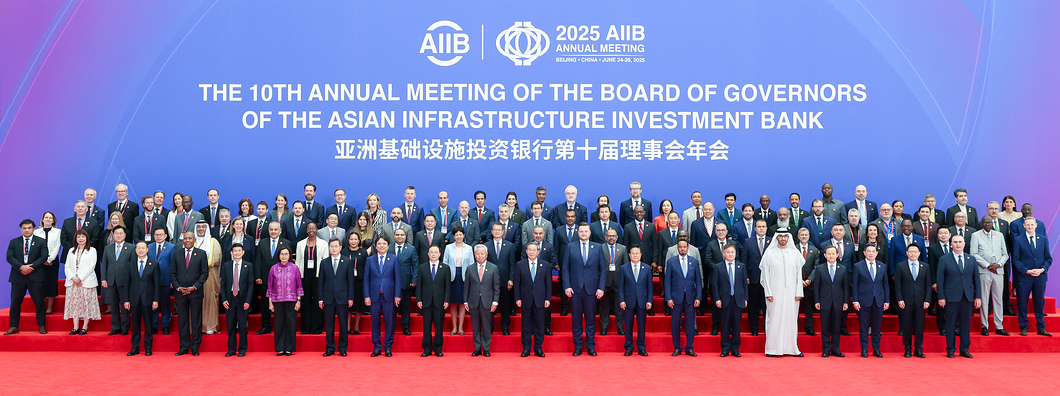
|
| In a group photo with other Governors during the 10th Annual Meeting of the Board of Governors of the AIIB in Beijing. |
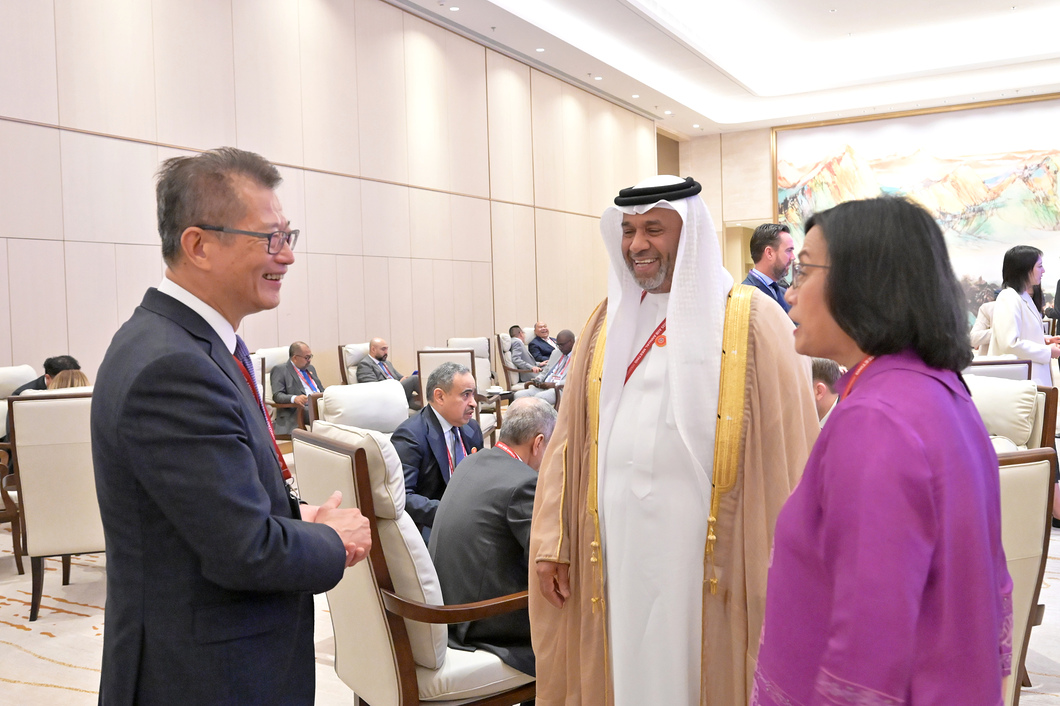
|
| Interacting with other attending Governors during the AIIB Annual Meeting. |
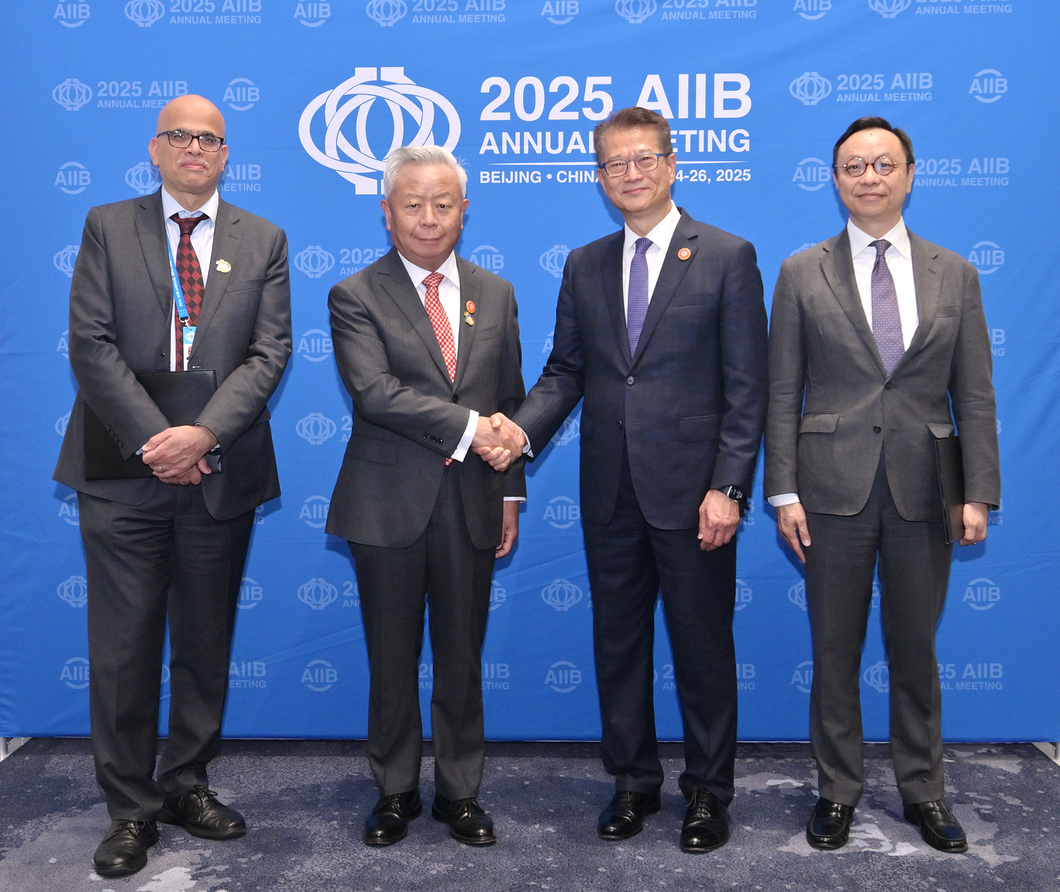
|
| Last week, the Hong Kong Monetary Authority (HKMA) and the AIIB signed a strategic partnership agreement to jointly support green transformation and infrastructure development in the region. |
Currently, the global political and economic landscape is being reshaped, and emerging economies are facing ongoing challenges. Hong Kong’s strengths in investment, innovation and technology (I&T), knowledge and networks can help Asian emerging economies accelerate their development in a more prosperous and inclusive manner through technology and innovation. During the AIIB meeting in Beijing, I witnessed the signing of a strategic partnership agreement between the Hong Kong Monetary Authority (HKMA) and the AIIB. Under the partnership, the two parties will collaborate to invest in a portfolio of venture capital funds focused on emerging markets in Asia. The partnership will support green transition and infrastructure development through innovation in technology and business models.
In addition, we will further strengthen our collaboration with the AIIB through financial innovation. Examples may include issuing bonds in a wider range of currencies and tenors, securitising infrastructure-backed loans, and issuing catastrophe bonds to meet the funding needs of infrastructure and other developments in the region.
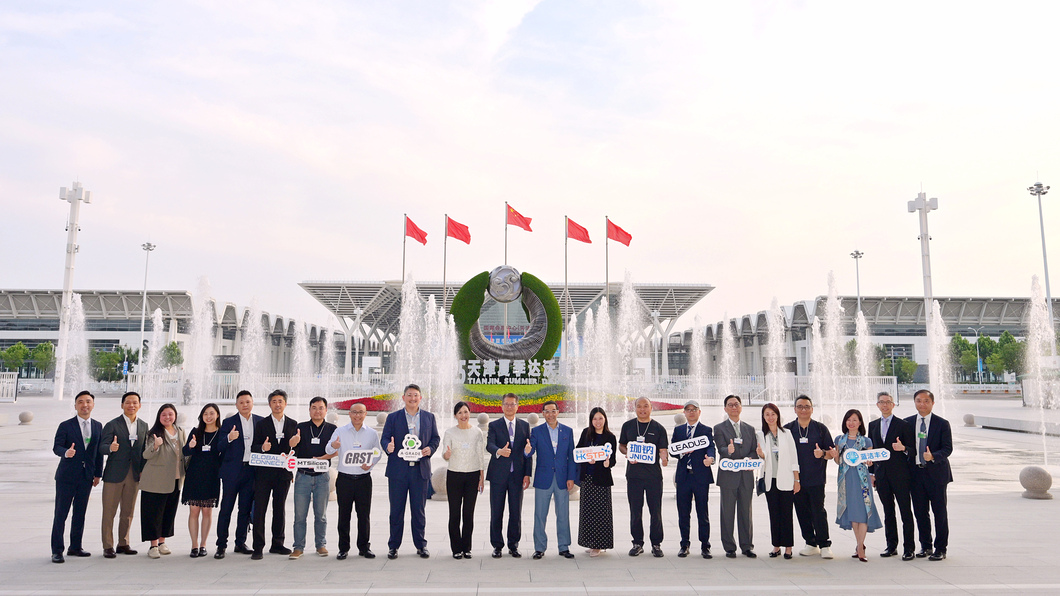
|
| I led a delegation of Hong Kong startups to participate in various activities during the visit to Tianjin. |
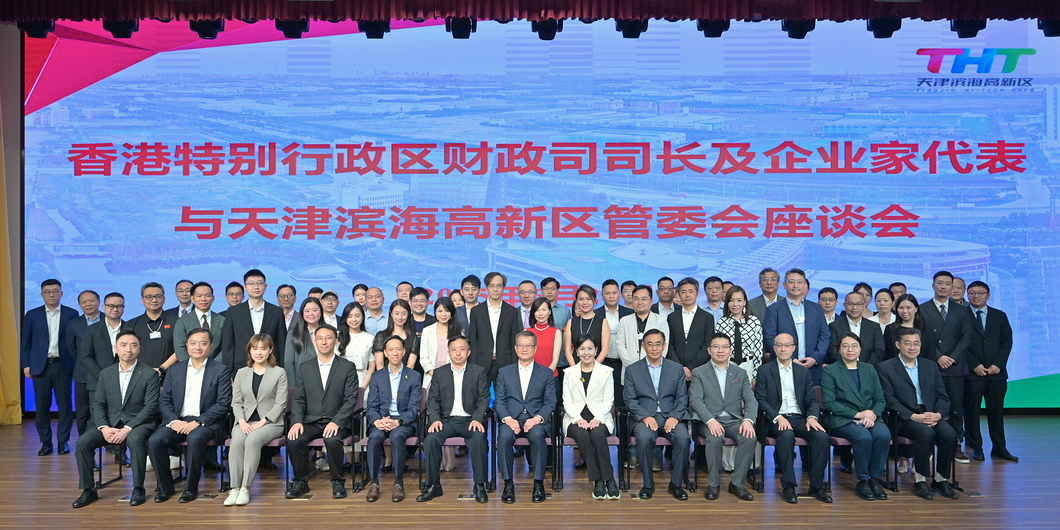
|
| I led a delegation of Hong Kong startups to attend a roundtable meeting with Tianjin I&T companies during the visit to the Tianjin Binhai High-tech Industrial Development Area. |
During my visit to Tianjin, I was accompanied by representatives from over 20 startups affiliated with the Hong Kong Science and Technology Parks Corporation, Cyberport, and the Hong Kong Investment Corporation Limited. These startups come from different fields including AI and big data, microelectronics, robotics, biomedicine, green and smart energy, e-commerce, fintech, insurtech and edTech. Tianjin has robust research and development capabilities in biomedicine, synthetic biology and advanced manufacturing, and has a strong industrial base encompassing nearly all of the industrial categories classified by the United Nations. In recent years, the city has been actively nurturing I&T and startups through its high-tech industrial development zones. This visit offered Hong Kong startups the opportunity to engage with their Tianjin counterparts, explore collaboration and share innovation resources. It also allowed us to tell the Hong Kong I&T story, expand networks and showcase the new facets and strengths in this area.
Deeper regional integration in Asia has now become one of the world’s most important and irreversible economic trends. In this new era for Asia, Hong Kong will continue to play a vital role and contribute to the prosperity and development of both the region and itself.
June 29, 2025